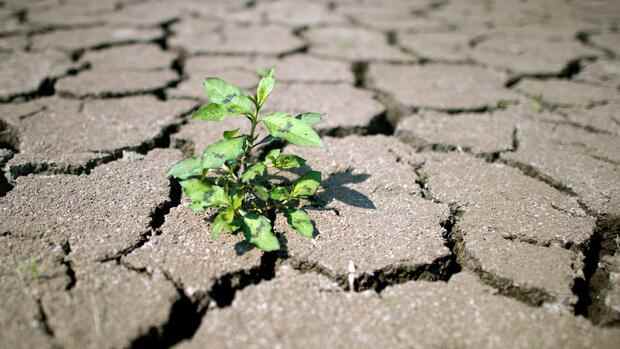The overexploitation of nature means that arable land is shrinking worldwide.
(Photo: dpa)
Actually, the UN wants to have eliminated hunger in the world by 2030. But instead of making progress, we are in the middle of a global food crisis. The pandemic, horrendous energy prices that make fertilizer production unprofitable – these are just a few of the causes. Climate change is much more serious. Extreme weather events such as drought and heavy rain erode soil. In many regions, the cultivation of wheat, soybeans, cocoa or bananas is becoming difficult if not impossible.
The food crisis is so dramatic that development aid cannot deal with it. Business and research in particular are now challenged. Food manufacturers are responsible for 500 million small farmers. Dropping these as soon as crop yields fall and buying elsewhere – this only works in the short term. And leads to entire regions becoming deserted and the people there starving.
Instead, companies should train local farmers in sustainable farming methods and help them switch to climate-resilient varieties. That’s a big investment. But this is the only way manufacturers can secure agricultural commodities in the long term – and also their existence. With its sustainable cocoa project in Nicaragua, chocolate producer Ritter is showing that not only financially strong corporations, but also medium-sized companies are capable of this.
Climate-hardy plants can save our planet
Decades of overexploitation of nature are now causing global arable land to shrink while the world population continues to grow. Economist Thomas Malthus was convinced in 1798 that the earth can only feed a very limited number of people. He would never have thought that seven billion people would be largely fed. Technological progress made it possible.
Top jobs of the day
Find the best jobs now and
be notified by email.
Even now, only innovation can lead humanity out of the climate and food crisis. More robust plants can be bred by gene editing. These need less land, water, pesticides and fertilizers. The UN must provide massive funding for research. And environmentalists should reconsider their blanket rejection of genetic engineering. Because without them, our planet cannot be saved. Care must be taken to ensure that seed companies do not achieve maximum profits at the expense of poor small farmers. Poor countries must be able to freely use patents – financed by the international community.
The food crisis does not only affect the poor in distant Africa or Asia. Famine leads to wars and floods of refugees. Our sated western world is also threatened. There is not much time left.
More: The global food crisis is getting worse – and bringing inflation and hunger
